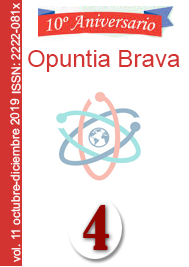Emotional’ impact of infidelity in couple relationship. Importance of your knowledge for the classic psychology
Keywords:
Emotion impact, marital breakup, couple, psychological consequencesAbstract
The following article responds to a non-experimental investigation. In this, the causes of infidelity and the emotional impact produced by their discovery in a relationship are discussed, according to the literature. On this basis, it has been found that fidelity is given from an agreement between the spouses, which is broken by the search for affection, new adventures, current changes in gender roles, personality and emotional intelligence. In this sense, regarding emotional impact, it is influenced by gender. Hence, men are mostly affected by a sexual infidelity, while women by an emotional infidelity. In general, feelings of anger, anger, depression and low self-esteem are the main consequences produced in the deceived person, effects that are similar to posttraumatic stress disorder (PTSD). These, through the interviews conducted, can trigger behaviors that affect physical and mental health.






















